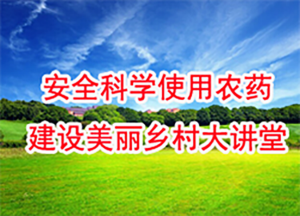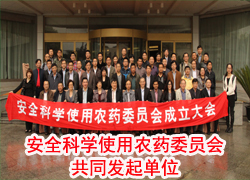
Approved List of Glyphosate (PMIDA) Environmental Protection Scrutiny To be Launched in May
責(zé)任編輯:Cong Lv 來源:China Crop Protection Industry Association 日期:2014-04-08
Glyphosate is currently one of the hottest herbicides in China and also around the globe. To improve the treatment level of the “three wastes” produced in the manufacturing process of glyphosate, reduce the emission of pollutants and promote a sustainable development of the glyphosate industry, the Ministry of Environmental Protection and China Crop Protection Industry Association (CCPIA) launched the environmental scrutiny work of glyphosate manufacturers in May 2013. It was originally planned to release the approved list at the end of last year; however, due to many unpredictable problems emerging in the scrutiny, it took a longer time than anticipated. According to relevant personnel in CCPIA, the list will be officially released this May.
The environmental scrutiny has great impact on the glyphosate industry. Due to the limitation on the industry production, especially on the production of glyphosate manufacturers failing environmental protection standards, and a low rate of operation, the production concentration was kept stable in 2013 when the glyphosate price soared. It is learnt that due to the environmental scrutiny and the price rise of the raw material glycine, the mainstream quoted price of glyphosate increased by nearly 7,000 yuan/tonne compared to that in last year.
For the purpose of environmental protection, the production of glycine is also limited, so its supply is tight. It is learnt that the domestic production of glycine declined to 340,000 tonnes in 2013 and the total output was 299,000 tonnes, showing a capacity utilization rate of 88%. The short supply has led to dramatic rise in glycine price, which is currently 14,500 yuan/tonne, nearly 2,000 yuan/tonne more than it was at the beginning of the year. Judging from that, the price rise of the raw material would increase the cost of glyphosate by nearly 1,160 yuan/tonne. Therefore, it is an inevitable result that the glyphosate price would increase.
Once the list is released, it will have even greater impact on the production pattern of the industry, and the prices of glyphosate products will continue to up.
中國農(nóng)藥工業(yè)網(wǎng) 版權(quán)所有
地址:北京市朝陽區(qū)農(nóng)展館南里通廣大廈7層
電話:010-84885233 京公網(wǎng)安備11010502025163










